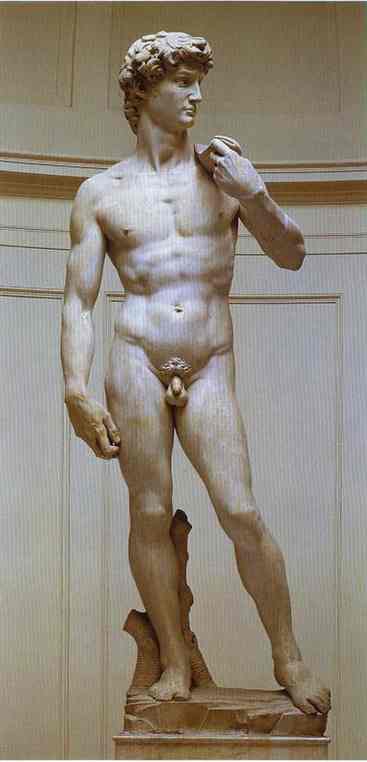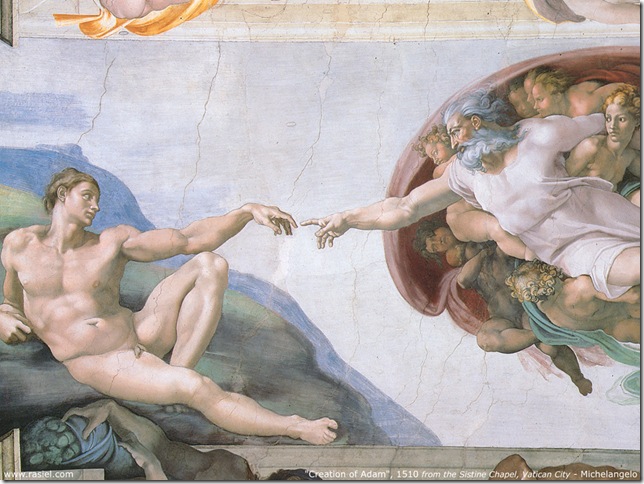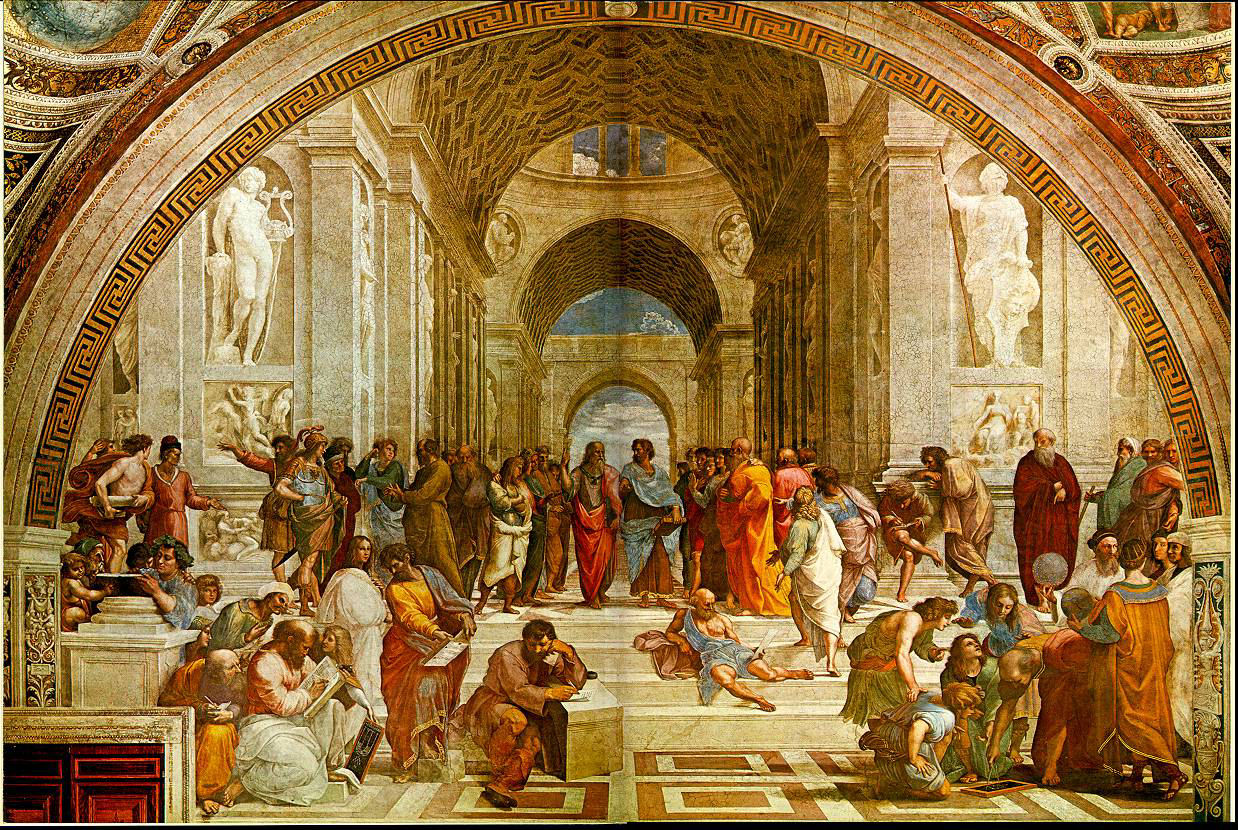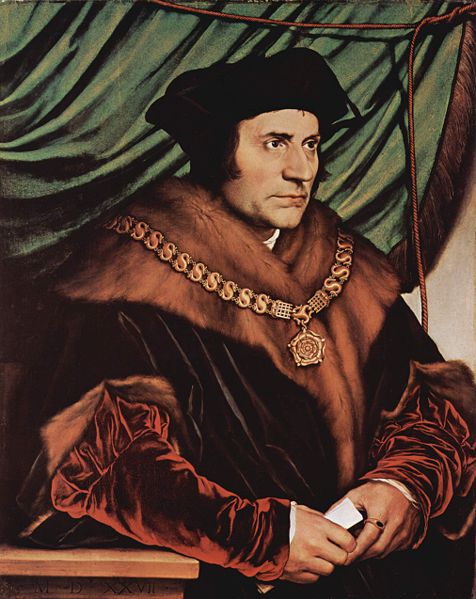 |
Craig White's Literature Courses Christian Humanism
See also Classical
Humanism
&
Judeo-Christianity:
|
 Michelangelo's David (1501-4) represents the Biblical hero David in the form of a classical Greek statue |
The "culture wars" of the late 20th-early 21st century USA often cast humanism and Christianity as opposing forces, but earlier and enduring traditions of Christian Humanism find these two sources of Western thought to be mutually reinforcing or interanimating. (Think of this relation as a dialogue or dialectic, where two actors or ideas sometimes oppose and sometimes share.)
Most people manage a personal balance between such competing demands, but discussions are often polarized, making it sound as though everyone must take sides, choosing one or the other, when much of Western history has involved some balance.
The two aspects of Christian Humanism are sometimes characterized as a choice between faith and reason, or between divine revelation and worldly facts.
You can learn distinctions without having to take sides or condemn the other side as ignorant or evil.
![]()
definitions / examples / attributes of humanism:
"Man is the measure of all things." (Protagoras, 5c BCE Greek philosopher)
The Olympics, inherited from Greek / Mediterranean nations, are probably the supreme humanistic spectacle in our society.
-
Not much talk of God or the divine or transcendent.
-
Instead, "the best the world has to offer" from different nations or peoples meet on equal physical or human terms.
-
Media emphasize the "human drama" of personal challenges, development, aspirations, even failures. Religious differences are downplayed in favor of equal playing field of human competition.
-
Humanism emphasizes the excellence aspired to or models created by people(s) of diverse beliefs and times. Thus algebra derives from Arab scholarship, but who cares if it helps the world function better?
In contrast, Monotheistic or Abrahamic religions base truth more or less exclusively on divine knowledge revealed in scripture(s):
e.g. Christians & Bible, Jews & Torah, Moslems & Koran, Mormons & Book of Mormon, etc.
-
Knowledge of nature or knowledge gained through worldly or empirical means is suspect and must be reconciled with scriptural traditions; e.g. denial of scientific evolution, or adaptation of billions of years to "seven days."
![]()
Thus the two traditions are distinct epistemologies or ways of knowing. However, they may be complementary instead of oppositional.
Christian Humanism = intellectual and artistic movement especially during the Renaissance (1400s-1600s) but other examples before and after.
Renaissance = "re-birth" of Classical learning and emphasis on reason, but this re-birth often occurred within the learning traditions of the church
How to reconcile Christianity's exclusive claims to truth with humanism's knowledge of different truths or traditions?
Not a "culture war" but a dialogue in which each side energized and corrected the excesses or errors of the other.
A risk is that one chooses between either a strict and exclusive absolutism or an indulgently permissive relativism.
Another option is prioritization. For instance, Milton admired and imitated the classics but prioritized religious knowledge as a guiding principle for morality, behavior, salvation, etc.
On the other hand, he and many other religious believers also controlled or interpreted the demands of religion through reason.
![]()
Examples of Christian Humanism:
The Catholic Church maintains many extra-biblical traditions of learning but did so especially in the European Renaissance before the Protestant Reformation.
(Protestantism may be seen as an ongoing movement to purify Biblical traditions of corruption from other more worldly traditions.)
Michelangelo, David (1501-4): Biblical hero imagined as noble Greek youth + nude

![]()
Sistine Chapel, Creation of Adam
(1508-12)
God, Adam etc. imagined & expressed as perfect, heroic human forms

Raphael, The School of Athens in the Vatican (great pre-Christian artists and intellectuals have a place in Christian tradition; Aristotle and Plato walk together at center)


Sir Thomas More, St. Thomas More
1527 portrait by Hans Holbein the Younger
Other great figures of Renaissance Humanism
Sir / St. Thomas More (1478-1635), legal advisor to Henry VIII, lawyer, diplomat, author of Utopia
Erasmus (1466-1536), Catholic priest & theologian, Renaissance humanist & social critic
Martin Luther (1483-1546), German monk, priest, professor of theology, leader of Protestant Reformation, translator of Biblical scripture into German
John Milton (1608-1674), English poet, scholar, civil servant, advocate for freedom of press and liberalization of divorce
Other historical figures who might be associated:
Martin Luther King (1929-68), Christian minister, political leader in humanistic tradition of civil disobedience (developed partly from scripture, partly from ecumenical sources like Gandhi)
Robert Kennedy (1925-68) advocate for social justice informed by classical learning and Christian concern for poor.
![]()
http://en.wikipedia.org/wiki/Humanism
http://en.wikipedia.org/wiki/Christian_humanism
![]()